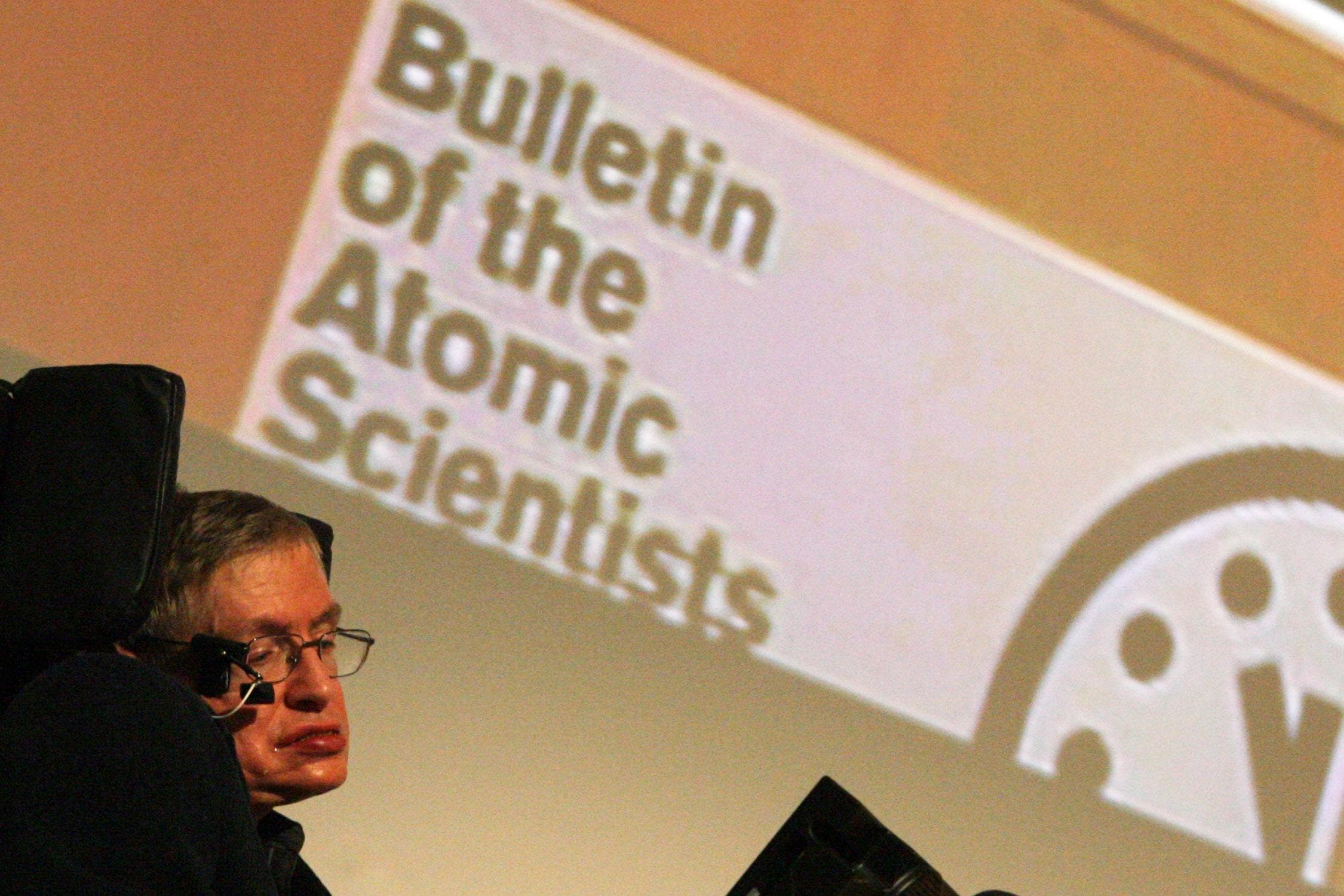Scientists set to reveal if Doomsday Clock is any closer to midnight
Last year, the clock shifted to 90 seconds away from striking 12 – the closest it has ever been.

Scientists are due to announce if the world is any nearer ending when they reveal if the Doomsday Clock has moved closer to midnight.
Last year, the clock shifted 10 seconds to 90 seconds away from striking 12 – the closest it has ever been.
At 3pm on Tuesday, the Bulletin of the Atomic Scientists will announce whether it will remain the same, move forward, or move back.
The clock is a symbolic timepiece showing how close the world is to ending, and last year the scientists cited the “unprecedented danger” posed by the Russia-Ukraine war.
The scientists said they were also concerned about China’s expansion of its nuclear capabilities, as well as North Korea stepping up its intermediate and longer-range missile testing.
The countdown was established in 1947 by experts from the Bulletin of the Atomic Scientists who were working on the Manhattan Project to design and build the first atomic bomb.
It was created to provide a simple way of demonstrating the danger to the Earth and humanity posed by nuclear war.
The clock first started ticking at seven minutes to midnight – and has moved forwards and backwards over the years as the threats to the world changed.
In 2020, it was set at 100 seconds to midnight, and remained unchanged for the next three years.
Although originally intended to warn of the threat of nuclear armageddon, the Doomsday Clock has evolved to take into account the likelihood of other emerging threats such as climate change and advances in biotechnology and artificial intelligence.
The Bulletin is an independent non-profit organisation run by some of the world’s most eminent scientists.
Bookmark popover
Removed from bookmarks